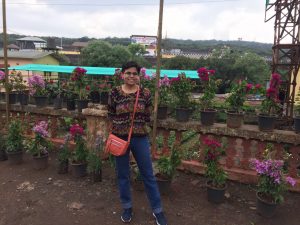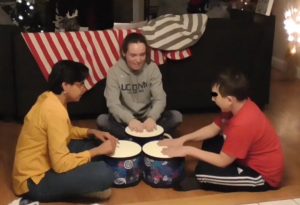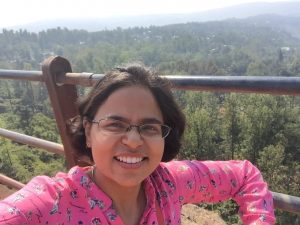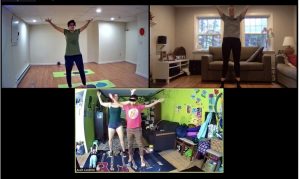Today’s Friday Feature is Sudha Srinivasan, PT, PhD!

Let’s find out more about Sudha Srinivasan, PT, PhD!
What lab are you from?
– Lab: REINVENT-PT Lab (REhabilitation INnoVations and Emerging Novel Technologies in Physical Therapy)
What is your role at UConn?
– I am an Assistant Professor in the Physical Therapy program within the Department of Kinesiology at UConn. I joined UConn in January 2019.
Can you tell us more about yourself?
– I am a pediatric physical therapist by training and earned my PhD in Kinesiology from UConn in 2014. My doctoral work focused on early identification of autism and the development of novel, embodied, movement-based interventions for school-age children with Autism Spectrum Disorder (ASD).
I completed 2 post-doctoral fellowships – one at the University of Delaware looking at the healthcare needs of families of school-age children and youth with ASD and the 2nd through a UNICEF-funded project to develop open source Augmentative and Alternative Communication (AAC) tool for non-verbal and minimally-verbal children with ASD. As part of this project, we developed a comprehensive, child-friendly icon-driven system available as picture cards, a desktop application, as well as Android and iOS apps to enable communication in children with communication impairments such as ASD, Cerebral Palsy, etc.
What studies are you currently working on?
– At UConn I am currently conducting on a few studies involving children and youth with developmental disabilities.
The “Play and Move” study is an intervention study that examines the effects of three types of play and movement interventions on motor, social communication, and cognitive skills of 6 to 14 year-old children with Autism Spectrum Disorder. The study involves children receiving interventions twice a week for a period of 8 weeks provided in a small group context involving the child, an expert clinician, an adult model, and the caregiver. Since the onset of the COVID-19 pandemic, we have transitioned the study online to tele health-based delivery using web- conferencing platforms. At present, families have the flexibility of either participating virtually or in-person, based on their convenience in the intervention.
The “Youth physical activity and function” study is aimed at studying physical activity patterns in youth with different types of developmental disabilities between 13 and 26 years of age. The study also seeks to understand perspectives relative to physical activity in stakeholders including youth with developmental disabilities themselves as well as among their caregivers, teachers, and therapists. As part of this study, we are presently conducting 1.5 hour-long focus group discussions with different groups of stakeholders to learn their experiences relative to getting youth with disabilities physically active, challenges they face, and suggestions they have to design better programs for this population.
What are your goals?
– I am very passionate about working with children. My long-term for research is to develop interventions, aids, technologies, etc. to empower individuals with disabilities and to enable them to fully engage in society to their maximum potential. I would like my work to inform clinical PT practice and enhance participation of children and youth with developmental disabilities. Ultimately, I would like my work to enable individuals with disabilities to lead fulfilling, physically healthy and happy lives.
What do you like to do for fun?
– I love reading fiction books, solving puzzles – word jumbles, Sudoku, logic puzzles, etc.., and watching movies with my husband!



